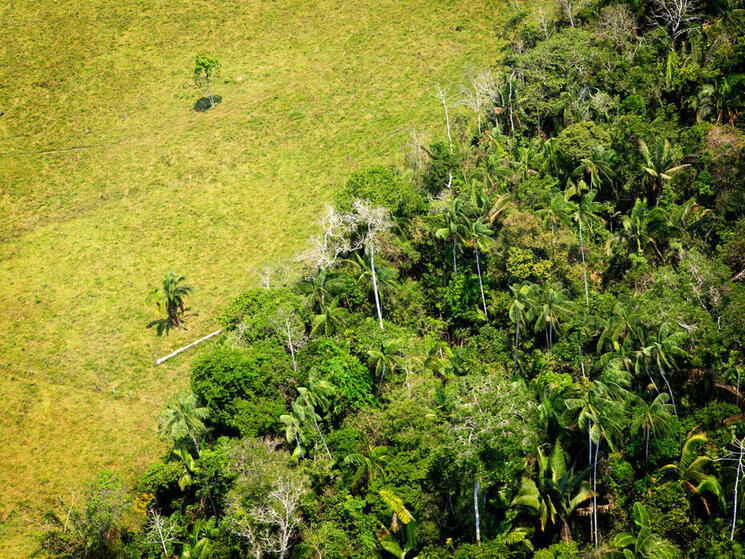
The Future of Beef is Deforestation-free
- Date: 21 February 2017
- Author: Jason Clay
When a large, global food company commits to deforestation-free commodities, its entire supply chain listens. And when McDonald’s does so, other global food companies follow suit. That’s why the company’s commitment to source only deforestation-free beef by 2020 in regions with identified risks relating to the preservation of forests holds such promise to protect critical habitats, including Latin America’s most valuable ecosystems.
While deforestation has slowed across parts of the Amazon, it remains the world’s largest arc of deforestation. Furthermore, as if to compensate for progress in the Brazilian Amazon, deforestation has intensified in other Amazon regions of countries neighboring Brazil, as well as the Cerrado savannah of Brazil, and the Chaco mixed grass and woodlands of Paraguay and Argentina.
Many factors drive deforestation, but beef production is the biggest. Cattle ranching occupies about 80 percent of the deforested area in the Amazon, and it has led to the conversion of nearly 200 million acres of Cerrado habitat. Between 1976 and 2011, more than 29 million acres of Chaco habitat were converted largely first for the production of beef and then soy, a feed source for livestock.
The environmental impacts of deforestation are clear: it contributes to climate change, drought, soil degradation and erosion, water pollution, the spread of disease, and the loss of biodiversity. There are a number of social impacts as well from land conflicts to bonded and child labor, the displacement of indigenous cultures, and deterioration of water quality for drinking and fish, the most common source of protein in many affected areas.
From multinational traders to smallholder farmers, businesses increasingly recognize the economic risks of deforestation, such as resource scarcity and soil degradation, supply chain instability, legal jeopardy, and reputational harm. Its impact on weather variability is particularly troublesome for Latin American farmers who largely rely on rain as opposed to irrigation. Indeed, research indicates that deforestation has contributed to several “once-in-a-century” droughts and floods in Brazil since 2000.
Global food companies are in a unique position to influence not only their own supply chains but also that of their rivals. McDonald’s need for ground beef from select cuts leaves the majority of each animal for other buyers. In other words, for every pound of deforestation-free beef raised on farms that supply to McDonald’s, several more pounds of food—as well as leather and other byproducts—are destined for other companies’ supply chains, facilitating a sector-wide move to conserve forests.
WWF is working to support the transition to deforestation-free commodities, such as beef, soy, palm oil, timber, and so on. As a founding member of the Global Roundtable for Sustainable Beef, for example, WWF works with producers, other industry players, environmental NGOs, and researchers to push for the adoption of locally appropriate indicators and metrics that help producers reduce the footprint of the beef they produce. In collaboration with National Wildlife Federation, The Nature Conservancy, and the Gordon and Betty Moore Foundation, we are securing commitments from other companies in the beef and soy supply chains to eliminate deforestation in the Amazon, Cerrado, and Chaco ecosystems specifically.
Just as the global, interconnected food system means that environmental and economic impacts can reverberate around the world, so too can positive commitments to protect forests ripple out across the entire industry. As one of the largest single buyers of beef, McDonald’s influences producers, processors, distributors, and other companies at every point along the value chain. Today, it is sending a clear message to all of them: the future of beef is deforestation-free.